To access all site contents, click HERE.
Why do we run this separate item, Mike Royko 50 Years Ago Today? Because Steve Bertolucci, the hero of the serialized novel central to this Substack, “Roseland, Chicago: 1972,” lived in a Daily News household. The Bertoluccis subscribed to the Daily News, and back then everybody read the paper, even kids. And if you read the Daily News, you read Mike Royko. Get your Royko fix on Twitter too: @RoselandChi1972.
October 30, 1972
If you’re reading THIS CRAZY DAY IN 1972, you know this week is Election Daze in our timeline. The papers are stuffed with the last campaign stops, political analysis and full-page ads.
Today, Mike gives his personal endorsements, “not intended to influence anyone,” for president, U.S. senator, governor, attorney general, secretary of state, comptroller, state’s attorney, coroner, Circuit Court clerk, and recorder of deeds.
But it’s the presidential endorsement that is indispensable Mike, so let’s read the whole thing uninterrupted, with some footnotes afterward.
One odd thing to mention first: For all other categories, Mike specifically states his preference. Here, though he’s clearly against Nixon, Mike apparently couldn’t quite make himself finish with even a satirical explicit call to vote for McGovern. I didn’t accidentally skip it.
“PRESIDENT: Unemployment has soared. So has the cost of living. So have corporate profits. Just about everything except the salaries of workers. And they say Sen. McGovern’s economic policies are weird.
“White House aides and top re-election staffers are involved in the Watergate scandal, but because Sen. McGovern didn’t know that Sen. Eagleton used to have the nervous twitch, they say he is inept. [1]
“After a career of Red-baiting and cold warfare, Mr. Nixon is chummy with the Chinese and the Russians. And they say Sen. McGovern is inconsistent.
“Mr. Nixon’s campaign strategy has included getting white ethnics angry at blacks, the middle class angry at the poor, the employed angry at the jobless, and they say Sen. McGovern is divisive.
“About 75 per cent of the nation’s papers have endorsed Mr. Nixon. [2] Maybe Spiro Agnew is right about the press.” [3]
[1] Sen. Tom Eagleton
“Sen. McGovern didn’t know that Sen. Eagleton used to have the nervous twitch.”
Though most readers will know this, let’s mention for Younger Readers: Not long after McGovern won the Democratic presidential nomination and named fellow Sen. Thomas Eagleton as his running mate, this story broke:
Eagleton admitted to being hospitalized with nervous breakdowns three times, a fact he had not shared with McGovern.
First, McGovern was all…
But then, McGovern was all…
So then…
Finally:
For more, see TCD1972 on July 25, July 28, July 31, and August 2.
[2] Nixon newspaper endorsements
Mike mentions that about 75% of the nation’s newspapers have endorsed Nixon. In Chicago, all four major dailies have or will endorse Nixon—see next week’s TCD72 for a round-up. The Defender skips a direct presidential endorsement.
At the Daily News, going by what got printed on the editorial page, readers were mostly livid about that paper’s Nixon endorsement.
But it was this letter in Chicago Today that I most enjoyed, and I’ll include it here because it mentions Spiro Agnew, who comes up next:
[3] Spiro Agnew
“Maybe Spiro Agnew is right about the press,” Mike concluded. He’s referring to Agnew’s famous, and famously mocked, alliterative quote from a 1970 speech attacking Nixon critics, aka the press. The speech was written by Nixon speechwriter William Safire, later a long-time New York Times columnist:
“In the United States today, we have more than our share of nattering nabobs of negativism. They have formed their own 4-H club—the hopeless, hysterical hypochondriacs of history.”
Mike really hates Spiro Agnew. See his November 19, 1971 column on Agnew’s Chicago visit, when Agnew mocked people on welfare.
One more endorsement
OK, I can’t resist adding Mike’s endorsement for Republican Gov. Richard Ogilvie over upstart independent Democrat Dan Walker:
“GOVERNOR: Dan Walker started his campaign by battling the Daley Machine. Now he shows up at Machine rallies and complains because the feds are trying to prevent vote fraud in Chicago.
“Gov. Ogilvie started this campaign by being fat. He has now lost 60 pounds.
“It takes more character to lose 60 pounds than to make goo-goo eyes at Mayor Daley.
“Besides, if Gov. Ogilvie loses 60 pounds every time he runs eventually he will disappear, which is what all politicians should strive for.”
October 31, 1972
“Most political candidates say they want to run high-class, ethical campaigns, based on the issues, but few of them are daring enough to try it,” writes Mike.
“But one man has. His is Tom Flynn, 34, a teacher and law student who is running for the state Senate in the near Northwest suburbs.
“I’ve watched a lot of campaigns, but I’ve never seen one like his.
“It is so ethical, high-minded, and noble that it is a disaster.”
Mike wrote about Tom Flynn on October 19. Flynn told Mike then that his opponent, Republican Niles Township committeeman John Nimrod, was “going around saying I’m a pinko and a queer.”
Flynn denied both allegations, and told Mike an interesting but unverifiable story about some of Nimrod’s political shenanigans.
In October, Mike noted that the only thing he knew about Flynn was that Flynn’s friends say he’s so honest, he held a $7.50/plate fundraising dinner and lost money because he had the restaurant serve a meal that cost more than $7.50/plate, feeling his donors should eat well.
Today, we learn more about Tom Flynn’s inability to run a campaign.
“He also tried to raise campaign money by sending 10,000 letters to residents of Niles, where he lives. It was a fine letter. It forthrightly explained why he was running and asked for a $1 contribution to his campaign.
“Of the 10,000 people who received the letter, 174 sent dollars.
“Since the printing and postage cost him $850, he lot almost $700 on that venture.
“‘I guess it could have been worse,’ Flynn says. ‘What if nobody had responded?’”
Some supporters offered to put up Flynn posters around the suburbs, but Flynn refused, believing such political posters are “visual pollution” left cluttering up the light poles and trees long after elections. Instead, opponent John Nimrod has posters papering all the light poles and trees in the district.
Flynn did manage to convince U.S. Sen. Ted Kennedy to drop in to campaign for area Democrats, including himself. Flynn visited Kennedy’s Washington office and kept in touch with his staff. But when Kennedy finally got to town, he only communicated with U.S. Rep. Abner Mikva’s office, and Mikva’s office never told Flynn about the political rally where Kennedy would endorse all the area Democrats.
Flynn heard about the Kennedy rally from someone else and ran over, but he couldn’t make it onstage.
“When I tried to get up there, one of the Secret Service men gave me some kind of judo chop on my wrist,” Flynn tells Mike.
“With still a week to go before the election, I asked Flynn how it looks to him,” writes Mike.
“‘It stinks. I’m getting the hell out of politics. If I win, I’ll run for re-election, but I doubt I’ll win.’
“That’s what I mean about honesty,” Mike concludes. “Try to find another candidate who will say that with a week to go.”
November 1, 1972
Mike Royko has written, and will write, some searing Vietnam columns. This one would have left my fingers sizzling if I were holding up today’s Daily News and reading page three in 1972.
Mike’s Vietnam columns must have been excruciating to read contemporaneously, because he never let the average American citizen off the hook any more than the politicians and generals. That is often his most central point, in fact.
Check out Mike’s Sept. 18 Vietnam column for a little background on his Vietnam writing, and to see a great example of how Mike can piss off people on every side of an issue. Now to today’s barn burner. There isn’t any big Vietnam news this week, by the way, to prompt this column. Vietnam is just part of the roiling presidential campaign as Election Day rushes toward 1972 readers. The Nixon campaign insists peace is imminent, while the McGovern campaign insists that Nixon’s peace claims are a campaign ploy.
“During the mid-’60s, both Jacqueline Susann and Bernard Fall wrote books,” Mike opens.
“Miss Susann’s books were lurid trash. They received scathing reviews. But ‘The Valley of the Dolls’ sold about 10 million copies…Mr. Fall’s books were brilliant studies of Vietnam and the war….At last count, one had sold 55,000 copies.”
So: “Instead of pointing the finger of blame at this politician, or that general, or those think-tank policy makers, the finger should return to where it was during the many years of death and debate—up our collective nose. Then it might be pointing in roughly the right direction.
“During all those years, we weren’t kept in darkness. We were lied to and much was kept secret. But we don’t have a government-controlled press. And Big Brother hasn’t taken over the tube yet.
“To the contrary, more information flowed out of this war than probably any in history. Despite its great unpopularity, the press…did possibly the finest job of covering and explaining a war as has ever been done.
“But most people were too busy. After one sets aside a certain number of leisure hours for pro football, baseball, the Wide World of Sports, and the late movie, who has time for Bernard Fall? Especially when ‘The Valley of the Dolls’ is only half read.”
Mike lists some early opponents to the war, and how they were hounded from office or labeled troublemakers—Sen. William Fulbright, Sen. Wayne Morse, Dr. Benjamin Spock.
“But the popularity of the sloganeering fools—the John Waynes, Bob Hopes and Howard Millers—remains intact,” he writes. “They were easy to understand. And THEY didn’t march in the streets. THEY didn’t question our leaders.”
… “It’s interesting that during all those years, the one person who could rock the national boat and not be hated was Ralph Nader. That’s because he didn’t ask about the blood that was being shed in Vietnam. He questioned whether the color TV sets on which we saw it being shed were worth the money we paid.
“He treated us as ‘consumers’ and demanded that we get our money’s worth, and we liked that. But those who treated us as citizens, with all the responsibilities that involves, were told to shut up and stop causing trouble.”
The closer:
“You would think that so rich and powerful a nation also would be the most interested and the most involved nation.
“But we’re not. Millions of people never looked beyond the length of Abbie Hoffman’s hair when thinking about the war. More people asked ‘why are they in Lincoln Park?’ than why we were in Vietnam.
“In a courtroom, ignorance of the law is no excuse. In the court of conscience, which is where we stand with our 40,000 dead and countless maimed, ignorance is no better an excuse.”
November 2, 1972
I love when they plug Mike on page one.
As you can see, this promo ran quite prominently. John D’Arco is Democratic committeeman for the 1st Ward, and everyone knows he represents Chicago’s Outfit in city politics. FYR: Chicago’s mafia was referred to as “the Outfit,” or “the syndicate.” So no politician really wants to see their name linked with D’Arco on the front page.
Last week, Mike lay in wait for Cook County State’s Attorney Ed Hanrahan at iconic 20th century Chicago German restaurant Zum Deutschen Eck on the evening when Hanrahan had just been acquitted of allegations of obstructing the investigation into his office’s 1969 pre-dawn police raid of a Black Panther apartment, which killed Panthers Fred Hampton and Mark Clark.
In Mike’s October 26 column, he wrote about how Hanrahan strode buoyantly through the front door of Zum Deutschen Eck, shaking hands as he went so fast that he accidentally started shaking hands with Mike, whom he loathes.
“‘It’s me,’ I said, feeling that a warning was only fair,” Mike recounted.
“‘I know it’s you,’ he snarled, dropping my limb.
“He started to move on, then wheeled and jutted out his magnificent jaw.”
Hanrahan literally got in Mike’s face about an earlier column, then strode on. If you missed it, it’s well worth clicking the link above. For a Hanrahan primer and coverage of his acquittal, start here and continue through that week’s THIS CRAZY DAY IN 1972 reading entries beneath this logo:
After today’s column, who knows what Hanrahan will do next time he sees Mike.
This week in 1972, the recently-acquitted Hanrahan is frantically campaigning across the county, appearing at every event he can as Election Day hurtles closer. And so we come to Mike’s explosive lede sentence today:
“John D’Arco, the crime syndicate’s top figure in Chicago politics, has been publicly praised by State’s Attorney Edward Hanrahan.
“This amazing display of affection occurred two nights ago at a big rally of 1st Ward precinct captains in a union hall on Madison St.
“D’Arco is political boss of the 1st Ward, although he has long taken his orders from people like Sam Giancana, his boyhood pal; Gussie Alex and Murray (The Camel) Humphreys.”
Sam Giancana
John D’Arco’s childhood pal was born Gilormo Giancana to Sicilian immigrants in Chicago in 1908, then baptized either “Salvatore Mooney Giancana” or “Momo Salvatore Giancana,” depending on whether you consider Wikipedia, Biography.com or Encyclopedia Brittanica more credible. Either way, he was known both as “Sam” and “Momo.” Giancana started with the Chicago Outfit as a “wheelman” for Al Capone, and became top boss 1957-1966, though his retired predecessors Tony “Big Tuna” Accardo…
…and Paul “The Waiter” Ricca, both retained ultimate authority.
In 1966, Giancana voluntarily relocated himself to Mexico after serving a year in prison for refusing to testify under a grant of immunity to a federal grand jury investigating organized crime empaneled by then-U.S. Attorney Ed Hanrahan. This grand jury investigation will come up later in Mike’s column today.
Giancana is an especially interesting mobster because he started hanging out with stars and politicians after his wife died. He reportedly shared a girlfriend with President John F. Kennedy briefly—Judith Exner—and hobnobbed with Frank Sinatra.
Giancana is both rumored to have helped make JFK president via ballot stuffing, and helped assassinate JFK as payback because Attorney General Robert F. Kennedy went after the Mafia even though they helped put JFK in office. Believe what you will.
In 1972, Giancana is still living in Mexico. Control of the Chicago Outfit had reverted to his retired predecessors, Accardo and Ricca, but Ricca died last month. See here for coverage of Ricca’s death and funeral. Giancana will be extradited back to the U.S. in 1974, and eventually scheduled to testify before the Senate’s Church Committee on an alleged failed 1960s CIA plot to assassinate Fidel Castro with Mafia help. Before Giancana can testify, he will be murdered in his own home—a killing never officially solved.
“A beaming Hanrahan got up on the stage with D’Arco, and said:
“‘I’m lucky to have a man like John D’Arco stand up with me.
“‘Not just last week, when I got off the hook, but for a long, long time.’
“And the hulking D’Arco, who has been the object of countless investigations, said of Hanrahan:
“‘He’s been my friend throughout the years. He’s all man.
“‘I don’t want any excuses on Election Day or the day after. You bring in the majority he needs.’”
And then the paper ran these pictures in the middle of the column. As contemporaneous Royko readers know, there were almost never pictures in Mike’s space:
D’Arco looks like Al Capone if Capone was a boxer.
Mike gives us a thumbnail John D’Arco sketch: D’Arco uses “political and gangland muscle to sell insurance to Loop businesses.” He was “groomed by the syndicate as a young man for a political career,” serving as a state senator and then 1st Ward alderman until Sam Giancana ordered him out, because “his syndicate ties became too obvious.”
In a Nov. 3 Tribune column, Bob Weidrich writes that Giancana kicked D’Arco off the City Council “because of declining illicit gambling revenues from the ward.” I obviously have no idea who’s correct.
Either way, D’Arco left City Council. But D’Arco has remained in his more powerful position as 1st Ward Democratic committeeman to this day in 1972, allowing him to stand on a stage with Cook County State’s Attorney Ed Hanrahan and order the 1st Ward Machine flunkies to deliver the vote for him.
Now Mike makes an explosive accusation:
“Six years ago, while he was the U.S. attorney here, Hanrahan was accused by his superiors in Washington of bungling a case that could have resulted in D’Arco and other syndicate figures being jailed.
“The Justice Department, then under Robert Kennedy, said Hanrahan failed to pursue FBI evidence that D’Arco and other 1st Ward figures had made a $20,000 payoff to Sam (Moe) Giancana, then the top man in Chicago’s syndicate, as his cut of their Loop insurance business…..
“The Justice Department…wanted Hanrahan to grant immunity from prosecution to D’Arco” and his insurance partners “so they could be ordered to tell a grand jury about their deals with Giancana. Thus, had D’Arco refused, he could have been jailed for contempt of court.
“This never occurred because Hanrahan, a Machine-sponsored appointee to the federal job, declared that he didn’t have enough evidence to pursue the matter.
“Washington officials thought otherwise, and it touched off a bitter dispute.”
Mike details all the ways in which Hanrahan obviously knows about D’Arco’s syndicate ties.
“Yet, Hanrahan, the big law-and-order man, could stand up on a stage with someone like D’Arco and say they have been close ‘for a long, long time,’” writes Mike.
“If that is so, he should have said it six years ago when he was being urged by the Justice Department to go after D’Arco. It might have shed light on why he didn’t.
“Hanrahan ended his talk to D’Arco’s crew with one of the standard lines from his political pitch. He said:
“‘The single aim I have in this campaign is to make this city safe for everyone.’
“The several hundred precinct workers cheered. Hanrahan’s band played.
“And D’Arco smiled slightly. He looked like he felt much safer already.”
Note: See the Weekend Edition for Tribune columnist Bob Weidrich’s column on Hanrahan and D’Arco in the next morning’s paper.
Also, I thought Mike may have gotten this story from the Carey campaign, via legendary Chicago politico Don Rose. But Don says, “I can’t take credit for this one.”
If you dig Mike Royko, check out the news he’s writing about here!
November 3, 1972
Oh boy, it’s Howard Miller Time. For Younger Readers, this is an allusion to an old slogan for Miller beer.
“It was an action-packed week for students at Arlington High School in Arlington Heights,” writes Mike. “Howard Miller, the Black Panthers, the Rev. Paul (Pueblo) Lindstrom, hysterical parents—they had them all. Who needs football?”
Mike describes the unfolding drama at Arlington High School, which I did not see in any paper. A recheck of available databases shows nothing. In 2022, this would have been a top story, everywhere. Make of that what you will.
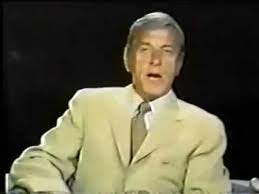
For newbies, here’s a Howard Miller primer below. For those already drinking after hearing the name “Howard Miller,” skip ahead to “Back to Arlington High School.”
Howard Miller Primer
Howard Miller was a Chicago radio giant who’s considered a direct ancestor of Rush Limbaugh. He started out as a disc jockey and morphed into a right-wing conservative talk radio host hawking Arizona real estate to gullible listeners.
You’ve heard of “Glengarry Glenn Ross,” right?
Of course you have. It’s by native South Sider David Mamet!
Howard Miller sold that kind of real estate, but in Arizona. One time, the Tribune’s Action Express (its version of the Daily News’ Bee Line and Chicago Today’s Action Line) had to help two readers get their money back from the worthless plot of sand and cactus that Miller’s people sold them.
Besides a weekly late night TV talk show on Ch. 32, Howard Miller was morning host on WIND (AM 560) for years—jockeying for top ratings with WGN’s legendary Wally Phillips. Howard Miller was Wally Phillips’ evil twin in every way—and they both famously wore silly toupees, too.
Miller got bounced off WIND in 1969. At that time, he and Wally were neck-and-neck, each owning 25% of ALL Chicagoland morning radio listeners.
What happened in 1969? During the riots after the assassination of Dr. Martin Luther King, WIND said that Miller said on-air that a special day should be held for the police and firemen who worked during the riots, and then Miller announced that 3,000 black youths were planning to march on the East Chicago armory. “Let them try it,” Miller allegedly added.
Miller denied the remarks. Apparently they didn’t record everything back then, because it remained a he said-they said situation. Miller and WIND parted ways and he began to bounce around the dial, threatening to run for this or that political office.
In August 1971, Howard Miller set himself up as chairman of a $250,000 fund-raising drive for the 12 State’s Attorney police indicted along with State’s Attorney Ed Hanrahan for conspiracy to obstruct the investigation of the raid that killed Black Panther leaders Fred Hampton and Mark Clark.
Mike Royko is not a Howard Miller fan.
You already know that if you read Mike’s Nov. 1 column earlier in this post, where Mike called Howard Miller a “sloganeering fool” along with Bob Hope and John Wayne.
In December 1971, Howard Miller—off the radio air waves, but hosting a weekly TV show on Ch. 32—was threatening to run for the U.S. House seat that Rep. Roman Pucinski gave up to run against U.S. Sen. Charles Percy, in the election coming up next week in our 1972 timeline. Mike lives in that district.
Mile wrote about the awful suspense, waiting to hear if Howard Miller was going to potentially represent his district, in his December 13, 1971 column:
“The excitement is getting to me,” Mike concluded. “I even spent most of Sunday getting ready for the political campaign by painting a sign to put in front of my house. The sign says: ‘For Sale.’”
In April 1972, WMAQ (AM 670) installed Howard Miller in its morning drive slot.
A couple of weeks later, Mayor Daley celebrated his 18th anniversary in office. Covering the story, the Daily News’ Henry Hanson noted that Mayor Daley had called Howard for his first morning back on the air.
Howard Miller: “Mister Mayor, it’s pretty early in the morning to ask anyone to be profound, although I’m inclined to think you’re profound 24 hours a day.”
Mayor Daley: “…in my opinion, politics, Howard, is one of the great vocations and the great professions. I put it alongside of the clergy, the great scientists, the educators, if properly done, and it’s unfortunate that many people assail a man or woman who takes politics as their profession when, on the contrary, they should be saluting them and encouraging them.”
That’s not surprising—Howard and Mayor Daley go way back, as we see here from a picture included with a June column by Tribune TV critic Clarence Petersen:
Back to Arlington Heights High School
Today, we learn from Mike that Arlington High School has a Student Forum club which occasionally hosts newsworthy speakers after school to talk about various issues. The club recently decided to invite some Black Panther representatives, since the Black Panthers have been in the news—especially in Chicago. Recall State’s Attorney Ed Hanrahan and 13 co-defendants were just acquitted, after a lengthy trial, of conspiring to obstruct the investigation into Hanrahan’s office’s 1969 predawn police raid on a Black Panther apartment, during which Panthers Fred Hampton and Mark Clark were shot dead.
For more on that, start here for a Hanrahan primer and continue through that week’s THIS CRAZY DAY IN 1972 reading entries beneath this logo:
The Black Panther representatives were approved by the Arlington High School principal. Previous controversial groups including the John Birch Society had appeared at the Student Forum. It was not a big deal.
“But a few mornings ago, a rather hysterical woman phoned Howard Miller’s radio show and was put on the air,” writes Mike.
“Howard, she cried, the Panthers are coming, the Panthers are coming.
“Howard was outraged. He urged his many listeners to contact the principal…and demand that the Panthers not be allowed to speak.
“Naturally, they did. If you have ever heard Howard’s listeners gab with him, you know that if he urged them to demand that the Constitution and the Bill of Rights be repealed, they would. Most of them wouldn’t have to be urged.”
When Mike wrote that, the idea of demanding the repeal of the Constitution was humorous exaggeration. Not so much 50 years later. Howard Miller, as noted earlier, is a direct Rush Limbaugh predecessor. Limbaugh was such an acolyte of Donald Trump that Trump awarded him the presidential Medal of Freedom during the 2020 State of the Union address. And in 2022, Donald Trump has just essentially called for overthrowing the Constitution, in a post on the social media website Truth Social:
“Do you throw the Presidential Election Results of 2020 OUT and declare the RIGHTFUL WINNER, or do you have a NEW ELECTION?,” Trump wrote, in response to news that Twitter suppressed news about the controversial contents of Hunter Biden’s laptop before the 2020 election. “A Massive Fraud of this type and magnitude allows for the termination of all rules, regulations, and articles, even those found in the Constitution.”
But back to Arlington High School. The poor principal was inundated with phone calls. Another forgotten rabble-rouser of the time period threatened to show up and disrupt the Student Forum—as Mike describes him, “the Rev. Paul Lindstrom, the skinny, right-wing Bible thumper who led the campaign for another war with Korea over the capture of the Pueblo.”
The principal and students together decided to cancel, though students whoa re quoted sound like they believed this was a postponement.
Mike gives a few student reactions:
“Steve Gehrig, 17: ‘Some parents think that Howard Miller is absolutely God. But the students wouldn’t have to go hear the Panthers. It’s voluntary.’”
“A junior: ‘Something like this will cause more problems than anything the Panthers would say. I’ve heard Howard Miller’s show and sometimes he talks like he wants a dictatorship in this country. Half the time he doesn’t even make sense, he’s contradicting himself so much. But I don’t call up his boss and tell them he ought to be kept off the air. Why should he censor what we hear?’”
Mike’s conclusion: “In general, the students make more sense than Miller. But who doesn’t?”
Coincidentally, the last time Mike wrote about Howard Miller, it was also because Miller was trying to shut somebody up. Mike’s October 20 column of letters from readers included a missive from the unrelated Josephine Miller, who was outraged because she had turned on the radio and heard a bit of Howard Miller planning to pressure the Catholic Church to keep Jane Fonda from speaking to a Catholic group somewhere.
Mike’s comment, which could just as well work today: “You know that flag Howard is always waving? He wants to stuff it in other people’s mouths.”
November 4-5, 1972
As we here all know, weekends could be sad for a Daily News family because Mike Royko wasn’t in the Daily News’ single weekend edition. So we look for Mike elsewhere on weekends.
You didn’t think Ed Hanrahan and his jaw would take Mike’s November 2 column quietly, right? Let’s look at the follow-up during the rest of this week.
From the November 3 Daily News:
You might think the Daily News would slap that Hanrahan response on the front page and flesh it out with reprints of some great Mike Royko column quotes. But no—that article ran underneath Mike’s Nov. 3 column, which means it ran at the bottom of page 3. That puzzles me. If any newspaper people of the day would care to comment, we’d all love to hear your thoughts!
What about the other papers? Well, remember in ‘72, each newspaper usually pretends in print that its competitors don’t exist. If forced to refer to competitors, each newspaper will generally say something like “another newspaper” rather than identify the competitor by name. Ditto for individual reporters and columnists— “a columnist from another newspaper” rather than “Mike Royko,” for example. This even applies between papers with the same owner, most of the time—in other words, between the Daily News and the Sun-Times, and between the Tribune and Chicago Today.
So Chicago Today and the Sun-Times aren’t going to throw the D’Arco story on the front pages either. Both papers just include Hanrahan’s denials at the end of general Hanrahan campaign stories, and do not tout it in the headlines.
However, the Trib’s Bob Wiedrich writes his own column on the Hanrahan-John D’Arco appearance, which appears the morning after Mike’s afternoon November 2 column. Given the timing, my guess is that Wiedrich was working on this column already. Also, Wiedrich includes quotes from the 1st Ward rally not used in Royko’s column, so he’s got his own sources. Let’s take a look:
Chicago Tribune
November 3, 1972
“Back in 1968, Ed Hanrahan ran for state’s attorney embracing a ‘gangsters fear this man’ banner to complement the torch of Christian morality he claimed to hold so high.
“The other night, Hanrahan demonstrated the reverse of that campaign philosophy by proving he doesn’t fear gangsters or their associates, either—if they suit his political purposes.
“Hanrahan publicly embraced 1st Ward Democratic Committeeman John D’Arco to his reelection banner and called him his friend.”
Wiedrich writes that “the sinister winds of the Mafia were stirring in that room that night” during the 1st Ward rally.
Wiedrich gives us a nice description of Hanrahan’s entrance to the rally, plus a terrific D’Arco quote: “Hanrahan was ushered in to the beat of a big brass band and the thunderous applause of a standing ovation by professional payrollers.
“‘This is the first time, as long as I have been in politics, that I have introduced a candidate for public office,’ D’Arco brayed, to be heard over the crowd.
“‘In that respect, I am telling you how I feel about him. We have to go all the way down the line for him.’
“If Giancana could hear the words down in Cuernavaca, Mexico, where he lurks in self-imposed exile, he must have flipped the hair piece he affects these days.”
Wiedrich notes that Hanrahan subpoenaed D’Arco for the same grand jury investigation that sent Giancana to prison for refusing to testify under a grant of immunity—which Mike Royko did not explicitly state. But Wiedrich doesn’t go any further on whether the Justice Department ordered Hanrahan to offer immunity to D’Arco too.
But Wiedrich does give us more Hanrahan quotes from the rally. Here’s a good one:
“Hanrahan noted to the 1st Ward payrollers that he bombed out in getting the endorsement of Chicago newspapers. But he added with a smile:
“‘I got the endorsement of the key man in the ward, John D’Arco, and [Ald.] Fred Roti. Go into every house in the ward and tell them you are for Ed Hanrahan.’”
Wiedrich’s column is a good one, so it’s a fair time to examine for a moment the two most glaring differences between Wiedrich and Royko as they write about the exact same topic, using the exact same prompt—the 1st Ward rally. With no disrespect meant to Bob Wiedrich, the ledes and conclusions show us why Mike Royko is Mike Royko. I didn’t even use Bob Wiedrich’s conclusion in the coverage of his column above, because it’s so convoluted.
Royko lede
“John D’Arco, the crime syndicate’s top figure in Chicago politics, has been publicly praised by State’s Attorney Edward Hanrahan.”
Wiedrich lede
“Back in 1968, Ed Hanrahan ran for state’s attorney embracing a ‘gangsters fear this man’ banner to complement the torch of Christian morality he claimed to hold so high.
“The other night, Hanrahan demonstrated the reverse of that campaign philosophy by proving he doesn’t fear gangsters or their associates, either—if they suit his political purposes.
“Hanrahan publicly embraced 1st Ward Democratic Committeeman John D’Arco to his reelection banner and called him his friend.”
Note that I had to include three paragraphs of Wiedrich’s opening to get to D’Arco. It’s paragraph five before Wiedrich spells out that D’Arco is connected.
Royko conclusion
“Hanrahan ended his talk to D’Arco’s crew with one of the standard lines from his political pitch. He said:
“‘The single aim I have in this campaign is to make this city safe for everyone.’
“The several hundred precinct workers cheered. Hanrahan’s band played.
“And D’Arco smiled slightly. He looked like he felt much safer already.”
Wiedrich conclusion
“Said Hanrahan of Ald. Roti: ‘He is a fine Democrat and a good friend.’ [Note: Roti replaced D’Arco as 1st Ward Alderman, and is also connected.]
“If Giancana could hear those words, he must have snickered, for by now the specter of his uneasy sleep must have been replaced by the proud banner Hanrahan once posed before way back in 1968.
“It read: ‘Criminals dread his election.’”
Here’s the rest of this week’s coverage of Hanrahan’s follow-up denials, which include some good material. The Tribune also didn’t slap this story broken by one of their star columnists on page one. Why not? Perhaps the Tribune didn’t want to promote it because Royko got to it one edition ahead of them.
Chicago Today
November 3, 1972
Chicago Today reporter Greg Ramshaw followed Hanrahan as he campaigned on November 2, even riding in a car with him between stops. Near the end of the article:
“Driving between campaign appearances, Hanrahan dismissed published reports that as United States attorney here he failed to take action against 1st Ward Committeeman John D’Arco for his reputed ties to the crime syndicate.
“‘There was no evidence against D’Arco. Nobody ever made a presentation to me that warranted any charges against him,’ Hanrahan said.
“‘I left that office in March, 1968. If the report is true, why haven’t my Republican successors filed indictments against him?’”
November 4, 1972
Chicago Sun-Times
by Harry Golden, Jr.
The Sun-Times’ Harry Golden covers Hanrahan’s triumphant appearance at an 11th Ward rally, Mayor Daley’s home turf. Golden also saves the John D’Arco comments for the end of the story:
“Meanwhile, Hanrahan has acknowledged that he and John D’Arco, the 1st Ward Democratic committeeman, exchanged declarations of friendship at a precinct captains’ rally.
“‘I thanked him (D’Arco) for his support in the primary election,’ Hanrahan said. ‘At least he wasn’t a fellow who disowned me. I don’t forget people who support me.’
“But Hanrahan said any suggestion that he failed his duty as former U.S. attorney in pursuing Federal Bureau of Investigation evidence tying D’Arco to crime syndicate activity is ‘utterly false.’
“At a press conference Friday, Hanrahan said, ‘No evidence was ever presented to me about D’Arco that would enable an indictment against him.’
“Hanrahan also denied in an interview that he was criticized by Washington superiors in the Justice Department for bungling a case in which the FBI had evidence that D’Arco and others had made a $10,000 payoff to Sam (Moe) Giancana, then top man in Chicago’s syndicate, as a share of their lucrative Loop insurance business.
“However, at the time, The Sun-Times learned that the superiors felt immunity should have been invoked for D’Arco to force him to testify before a grand jury under threat of jail. That was the procedure that sent Giancana to jail to a year.”
November 4, 1972
Chicago Tribune
The Trib’s Robert Enstad covers the same ground as the Sun-Times’ Golden. He also notes that Hanrahan held a press conference “in response to two newspapers’ columns concerning his visit to the meeting of the 1st Ward Democratic organization on Tuesday…Hanrahan branded the columns part of a last-minute smear campaign to defeat him in his bid for reelection.
“One of the columns appeared in The Tribune’s Tower Ticker, by Bob Wiedrich, ad the other was in the Chicago Daily News.” No mention of Mike Royko, of course. I’m surprised they even named the Daily News.
Enstad also adds this:
“Hanrahan said he exchanged affections with D’Arco because D’Arco is a Democratic ward committeeman who supported Hanrahan in the Black Panther raid case.
“‘I suggest that too much was made out of my simple gratitude,’ said Hanrahan. “My expressed thanks to Committeeman D’Arco…was the same I have given the thousands of other people who also supported me in the Black Panther case.
“‘People should never be slandered because of their nationality or because newspaper columnists do not like them. Decent people, like the law, make judgements on the basis of evidence, not newspaper charges.’”
November 5, 1972
Chicago Today
by Dianne Witkowski
“Bernard Carey, Republican candidate for state’s attorney, yesterday called Edward Hanrahan’s friendship with 1st Ward Democratic Committeeman John D’Arco ‘a questionable display of cops and robbers on the same stage.’”
…. “Carey recalled that in 1966, Hanrahan, then United States attorney, refused to grant immunity to D’Arco during testimony before a federal grand jury regarding his relationship with syndicate mob chief Sam Giancana.
“D’Arco and other 1st Ward politicians refused to testify on the grounds that such testimony might tend to incriminate them.
“Carey said the then U.S. Atty. Gen. Nicholas Katzenbach ordered Hanrahan to grant the politicians immunity for their testimony, but Hanrahan refused.
“‘He has given no intelligent, adequate explanation at all about his action in stopping the Giancana investigation,’ Carey said, ‘unless we are to accept the explanation offered by D’Arco’s remark the other night: ‘Hanrahan has been my friend thruout the years.’
“Carey said the Justice Department had given Hanrahan evidence of at least two payoffs to Giancana by 1st Ward politicians totaling $30,000.”
November 5, 1972
Chicago Sun-Times
no byline
“Bernard Carey blasted as ‘disgraceful’ Saturday State’s Atty. Edward V. Hanrahan’s declaration of friendship for John D’Arco, 1st Ward Democratic committeeman.
“‘Let me say in the clearest possible terms that Ed Hanrahan’s relationship with this man—and through him with syndicate gangsters—is disgraceful,’ Carey said in a prepared statement. ‘That he would see fit to parade this friendship in public testifies (to) his contempt for the voters….That Hanrahan chooses to conduct a public love feast with this man shows, at the very least, poor judgment.’”
By the way, this feature is no substitute for reading Mike’s full columns. He’s best appreciated in the clear, concise, unbroken original version. Our purpose here is to give you some good quotes from the original columns, plus the historic and pop culture context that Mike’s original readers brought to his work. Sometimes you can’t get the inside jokes if you don’t know the references. Plus, many iconic columns didn’t make it into the collections, so unless you dive into microfilm, there’s riveting work covered here you will never read elsewhere.
If you don’t own any of Mike’s books, maybe start with “One More Time,” a selection covering Mike’s entire career which includes a foreword by Studs Terkel and commentaries by Lois Wille.

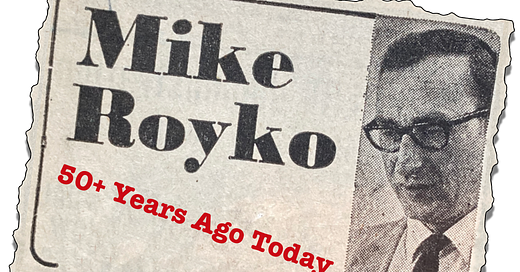









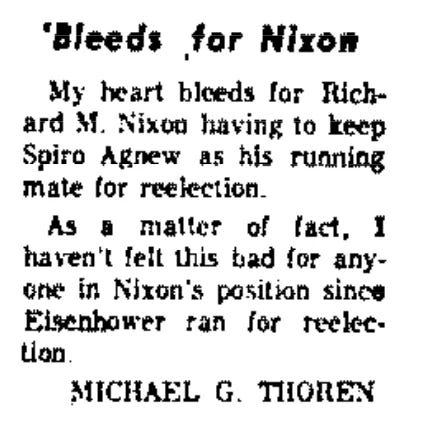
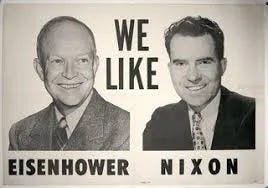
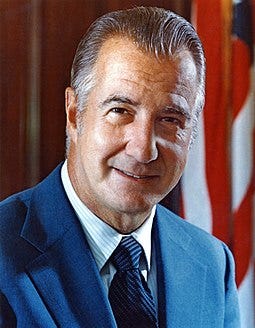





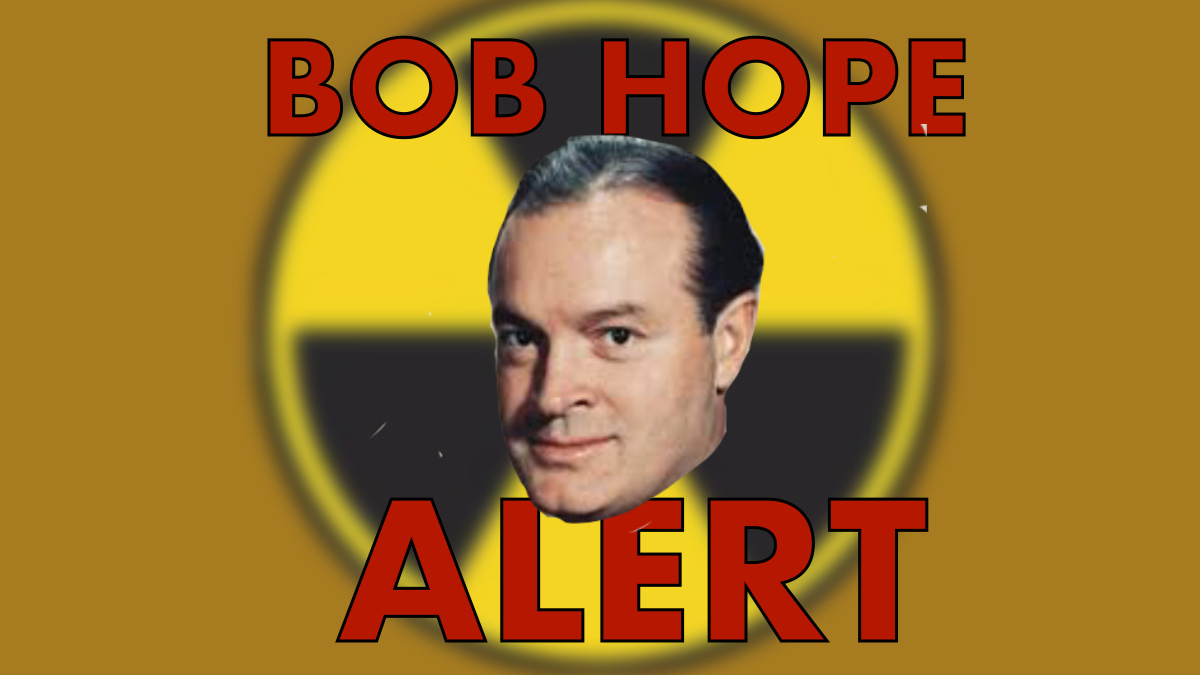





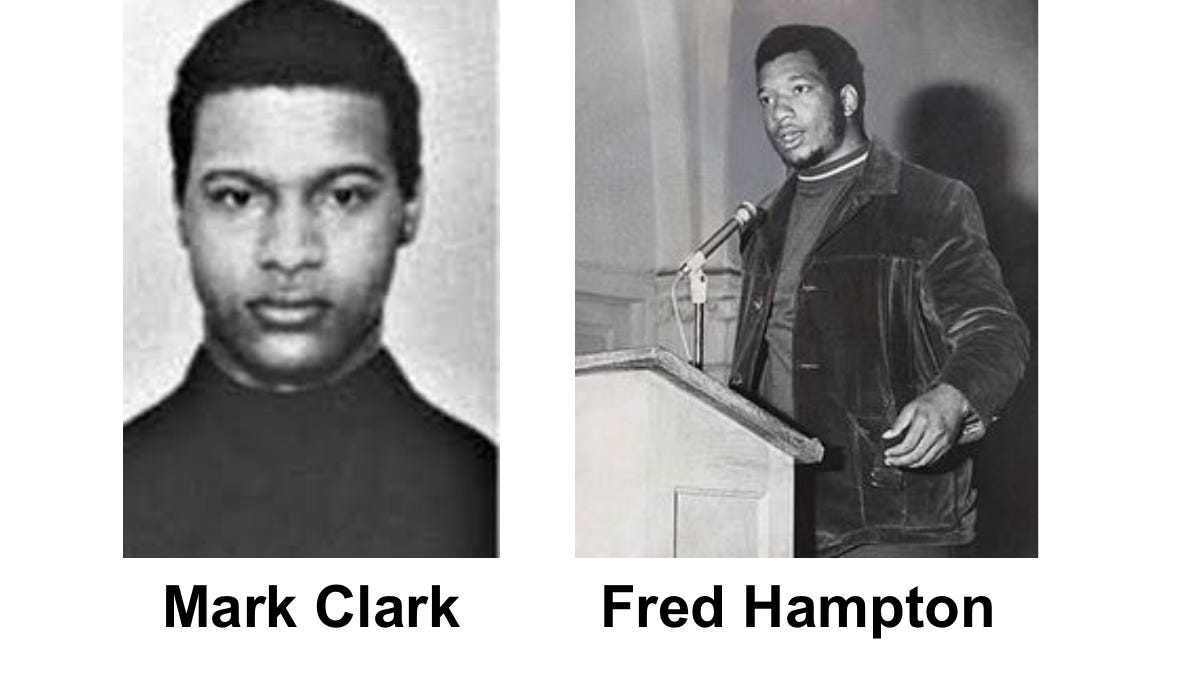




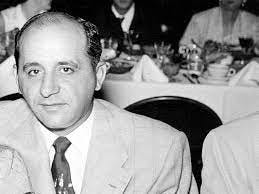
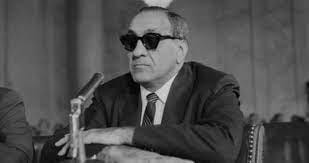
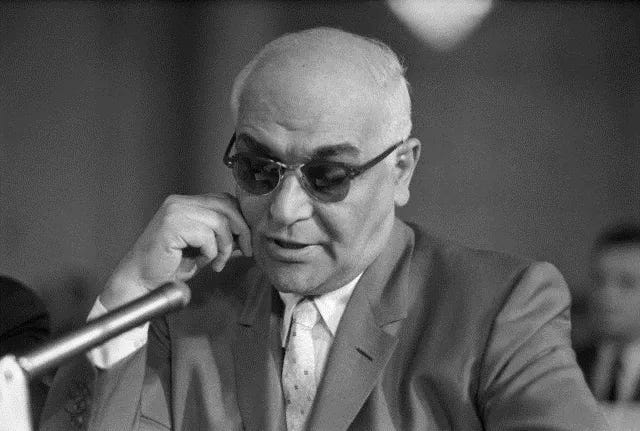
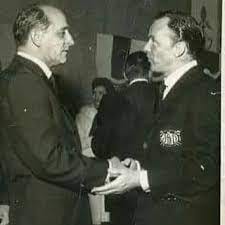
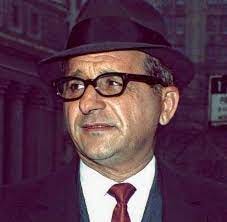




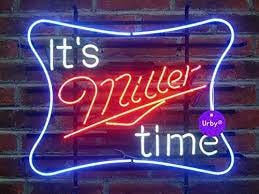
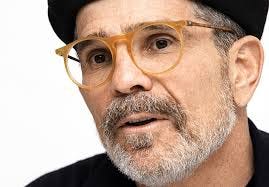

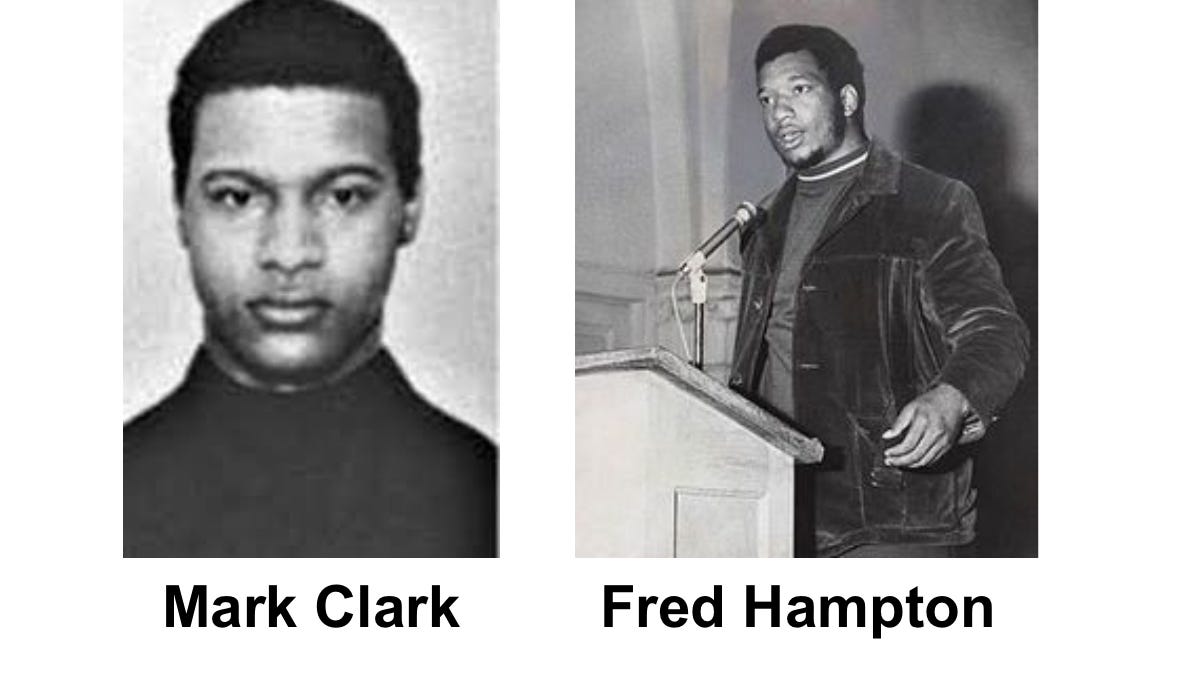


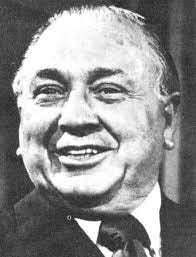

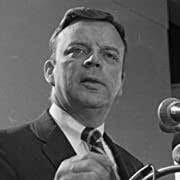


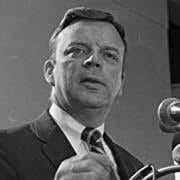
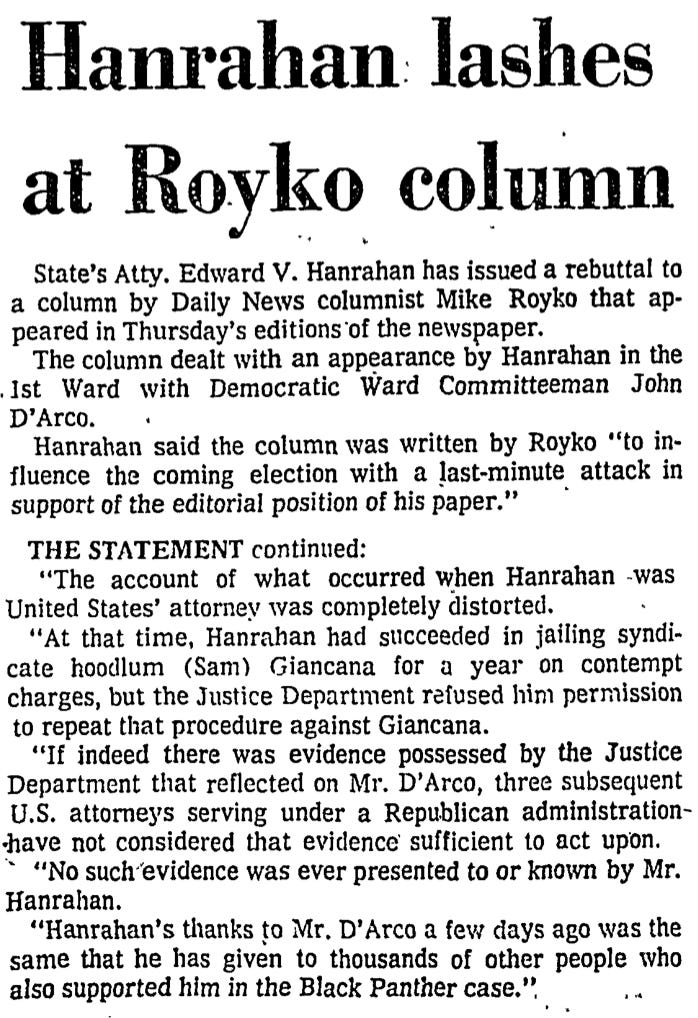

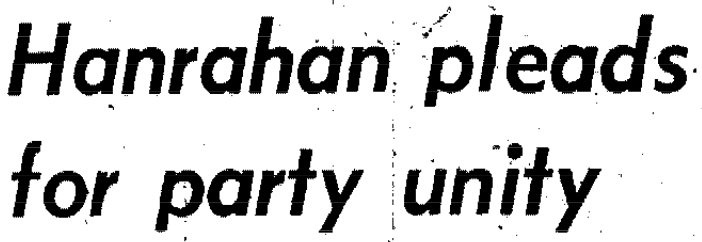

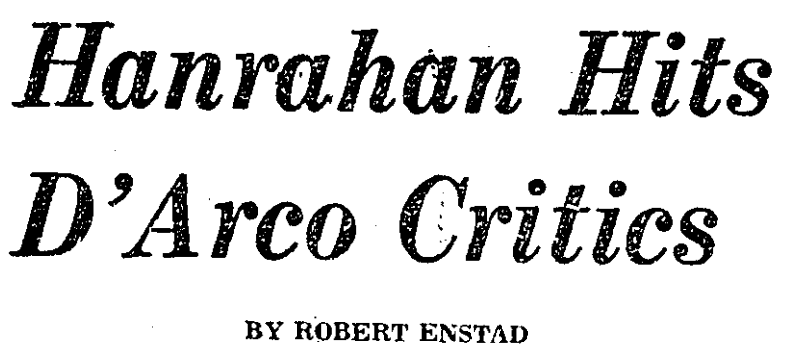





Please rewrite the Lake Shore Drive address, as the Inner Drive doesn't have Dusable appended to it, because the residents wouldn't allow it to change the street they live on.